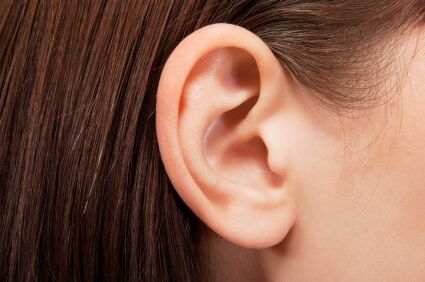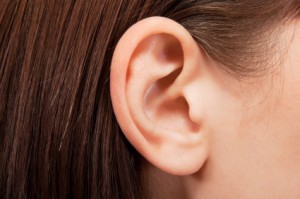
Recently, a study published in The Laryngoscope found that obese adolescents are two times as likely to have unilateral low-frequency hearing loss than non-obese teens. The obese teenagers studied also had higher levels of hearing loss across all frequencies.
This study is just the latest in a slew of studies reporting a number of health issues in obese children and adolescents, including type 2 diabetes starting at earlier ages. The epidemic is still on the rise.
According to a study, published in Pediatrics, of nearly 4,000 youths between the ages of 12 and 19, the number of those with diabetes or pre-diabetes had increased from 9 percent in 1999 to 23 percent in 2008.
First author of the obesity-hearing loss study, Anil K. Lawani, M.D. of Columbia University Medical Center, and his colleagues hypothesize that obesity might directly or indirectly (through type 2 diabetes and heart disease, along with other obesity-related ailments) contribute to hearing loss.
Dr. Lawani and his research team analyzed the data of 1,500 adolescents aged 12 to 19 compiled by the National Health and Nutrition Examination Survey. Many factors, such as current medical conditions, medications, and noise exposure were accounted for, to add to the accuracy of the study.
Analysis of the results connected adolescent obesity with sensorineural hearing loss, caused by damage to the hair cells of the inner ear. 7.89 percent of non-obese teenagers were found to have low-frequency hearing loss, while 15.16 percent of obese teenagers – approximately double the amount – experienced low-frequency hearing loss.
People who experience low-frequency hearing loss (inability to hear frequencies 2,000 Hz and below) often can understand speech, but have difficulty hearing in noisy settings or situations with a lot of background noise. The hearing loss in the obese adolescents studied suggests early injury to the inner ear that could escalate as these individuals grow into adults.
Dr. Lawani states, “furthermore, hearing loss should be added to the growing list of the negative health consequences of obesity that affect both children and adults — adding to the impetus to reduce obesity among people of all ages.”
According to David S. Ludwig, a childhood obesity expert practicing at Children’s Hospital in Boston, “it’s one thing for an overweight or obese 55-year-old gaining an extra few pounds a year to develop diabetes at age 65 and then have a heart attack. It’s a very different thing if the clock starts ticking at age 10. Children have so many more years to suffer from the consequences from these serious medical problems related to obesity.”
 Dr. Ludwig adds, “we’re looking at the prospect of heart attack, stroke and kidney failure becoming common complications of young adulthood.” Now, hearing loss is added to the list of potential complications.
Dr. Ludwig adds, “we’re looking at the prospect of heart attack, stroke and kidney failure becoming common complications of young adulthood.” Now, hearing loss is added to the list of potential complications.
It is high time for our nation to seriously address the epidemic of obesity, in both children and adults. Simply creating marginally-healthier fast food menus will not cut it. A major change in lifestyle, and in mindset, is needed.
-The Alternative Daily
Sources:
http://www.sciencedaily.com/releases/2013/06/130617160732.htm?utm_source=feedburner&utm_medium=email&utm_campaign=Feed%3A+sciencedaily%2Ftop_news+%28ScienceDaily%3A+Top+News%29
http://www.npr.org/blogs/health/2012/05/21/153030283/a-dire-sign-of-the-obesity-epidemic-teen-diabetes-soaring-study-finds

